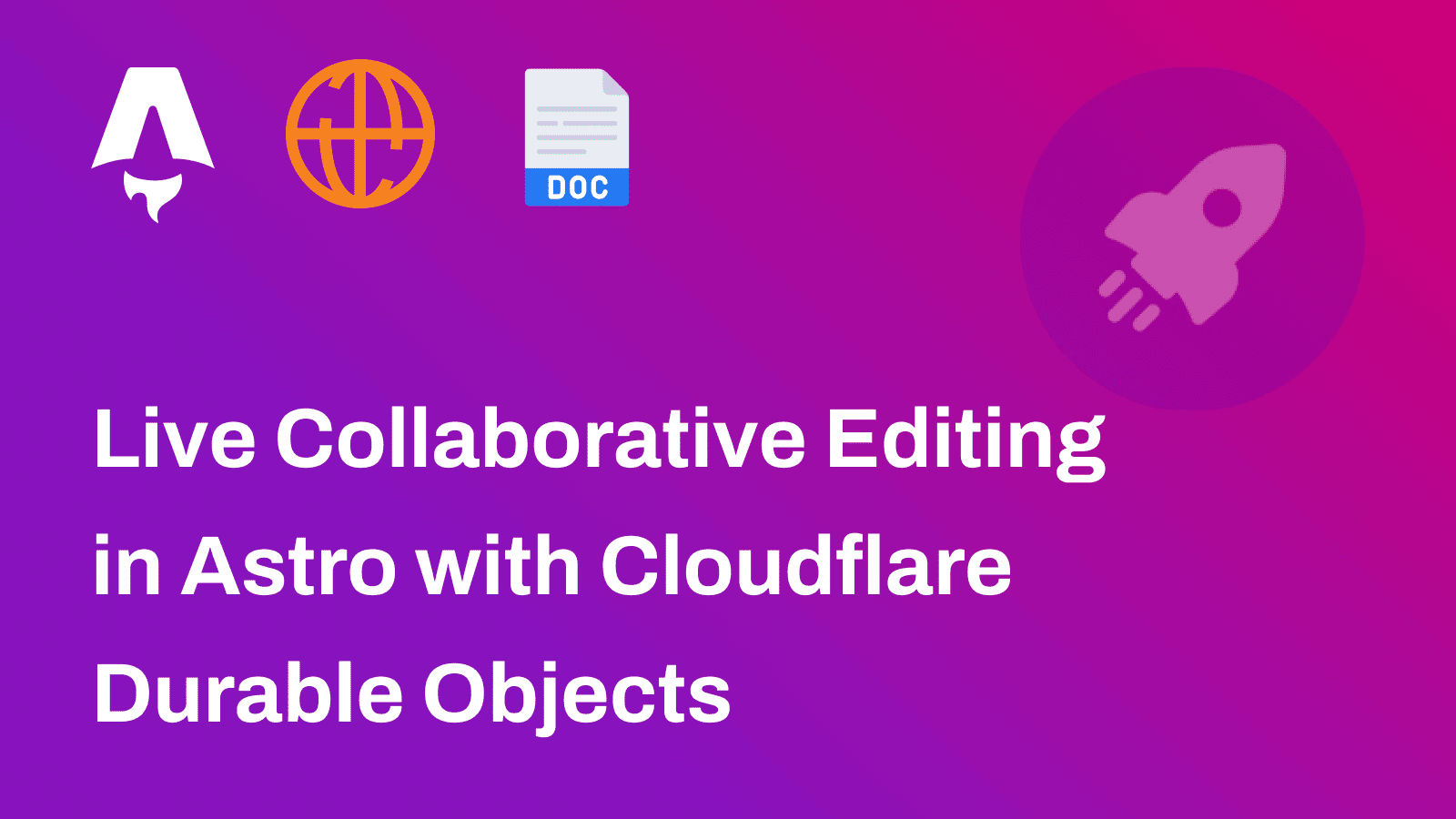In this guide, you will learn how to use Unplugin Icons in an Astro application using React. You will go through the process of setting up a new Astro project with React, configuring Unplugin Icons, and using them to leverage a huge collection of icons in your application.
Prerequisites
You’ll need the following:
- Node.j 20 or later
Table Of Contents
- Create a new Astro application
- Integrate React in your Astro project
- Integrate Unplugin Icons in your Astro project
- Build and Test your Astro application locally
Create a new Astro application
Let’s get started by creating a new Astro project. Execute the following command:
npm create astro@latest my-appnpm create astro is the recommended way to scaffold an Astro project quickly.
When prompted, choose:
Emptywhen prompted on how to start the new project.Yeswhen prompted if plan to write Typescript.Strictwhen prompted how strict Typescript should be.Yeswhen prompted to install dependencies.Yeswhen prompted to initialize a git repository.
Once that’s done, you can move into the project directory and start the app:
cd my-appnpm run devThe app should be running on localhost:4321.
Now, let’s move on to integrate React in your Astro application.
Integrate React in your Astro project
Execute the following command to integrate React in your Astro project:
npx astro add reactnpx allows us to execute npm packages binaries without having to first install it globally.
When prompted, choose the following:
Yeswhen prompted whether to install the React dependencies.Yeswhen prompted whether to make changes to Astro configuration file.Yeswhen prompted whether to make changes totsconfig.jsonfile.
Now, let’s move on to integrating Unplugin Icons in your Astro application.
Integrate Unplugin Icons in your Astro project
Install the Unplugin Icons dependencies
Execute the commands below to install the necessary packages for using Unplugin Icons with React in Astro:
# unplugin-icons package for Vite compilernpm i -D unplugin-icons
# @iconify/json package for the icons collectionnpm i -D @iconify/json
# @svgr/core and @svgr/plugin-jsx packages for React compatibilitynpm i -D @svgr/core @svgr/plugin-jsxThe command installs the following libraries:
unplugin-icons: A package to access thousands of icons as components on-demand universally.@iconify/json: A big collection of open source vector icons, all validated, cleaned up and converted to the same easy to use format.@svgr/core: A package to transform SVGs into React components.@svgr/plugin-jsx: A package to transform SVG into JSX.
Further, perform the following additions in astro.config.mjs to use the Unplugin Icons integration:
import react from "@astrojs/react";import Icons from "unplugin-icons/vite"; // [!code ++] // [!code focus]import { defineConfig } from "astro/config";
export default defineConfig({ integrations: [ react(), vite: { // [!code ++] // [!code focus] plugins: [ // [!code ++] // [!code focus] Icons({ // [!code ++] // [!code focus] jsx: "react", // [!code ++] // [!code focus] compiler: "jsx", // [!code ++] // [!code focus] autoInstall: true, // [!code ++] // [!code focus] }), // [!code ++] // [!code focus] Icons({ // [!code ++] // [!code focus] compiler: "astro", // [!code ++] // [!code focus] autoInstall: true, // [!code ++] // [!code focus] }), // [!code ++] // [!code focus] ], // [!code ++] // [!code focus] }, // [!code ++] // [!code focus] ],});As learnt from a GitHub issue, it is wise to use both compiler modes, i.e. with React and Astro. This allows the usage of Unplugin Icons in both React and Astro components in your Astro application.
Create Type Definitions for Unplugin Icons
To make sure that you can leverage the type definitions of the Unplugin Icons using React in Astro, you would want to globally define such specific Icon imports as React component imports.
To do so, update the env.d.ts in the src directory with the following code:
/// <reference types="astro/client" />
declare module "virtual:icons/*" { // [!code ++] // [!code focus] import type { SVGProps } from "react"; // [!code ++] // [!code focus] import type React from "react"; // [!code ++] // [!code focus] const component: (props: SVGProps<SVGSVGElement>) => React.ReactElement; // [!code ++] // [!code focus] export default component; // [!code ++] // [!code focus]} // [!code ++] // [!code focus]The code above simply marks each import done via virtual:icons to be considered as React components in your Astro application.
Use Unplugin Icons in the index route
Finally, import the icon and use it in your Astro (or React) component with the following code:
---import MdiAlarmOff from "virtual:icons/mdi/alarm-off"; // [!code ++] // [!code focus]---
<html lang="en"> <head> <meta charset="utf-8" /> <link rel="icon" type="image/svg+xml" href="/favicon.svg" /> <meta name="viewport" content="width=device-width" /> <meta name="generator" content={Astro.generator} /> <title>Astro</title> </head> <body> <h1>Astro</h1> <MdiAlarmOff client:load /> // [!code ++] // [!code focus] </body></html>The code above imports an icon as a React component in the index route.
You’re all done now!
Build and Test your Astro application locally
To test the application, prepare a build and run the preview server using the command below:
npm run build && npm run previewConclusion
In this guide, you learned how to use Unplugin Icons with React in an Astro application.
If you have any questions or comments, feel free to reach out to me on Twitter.


